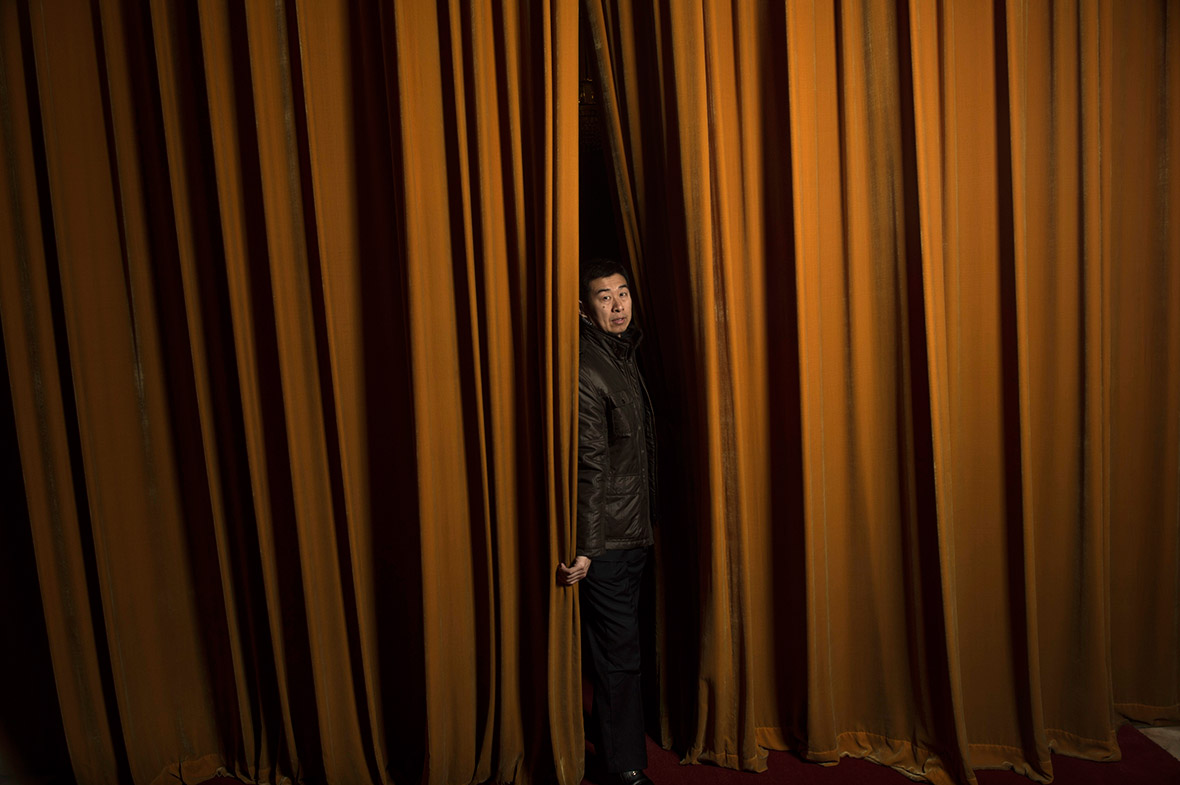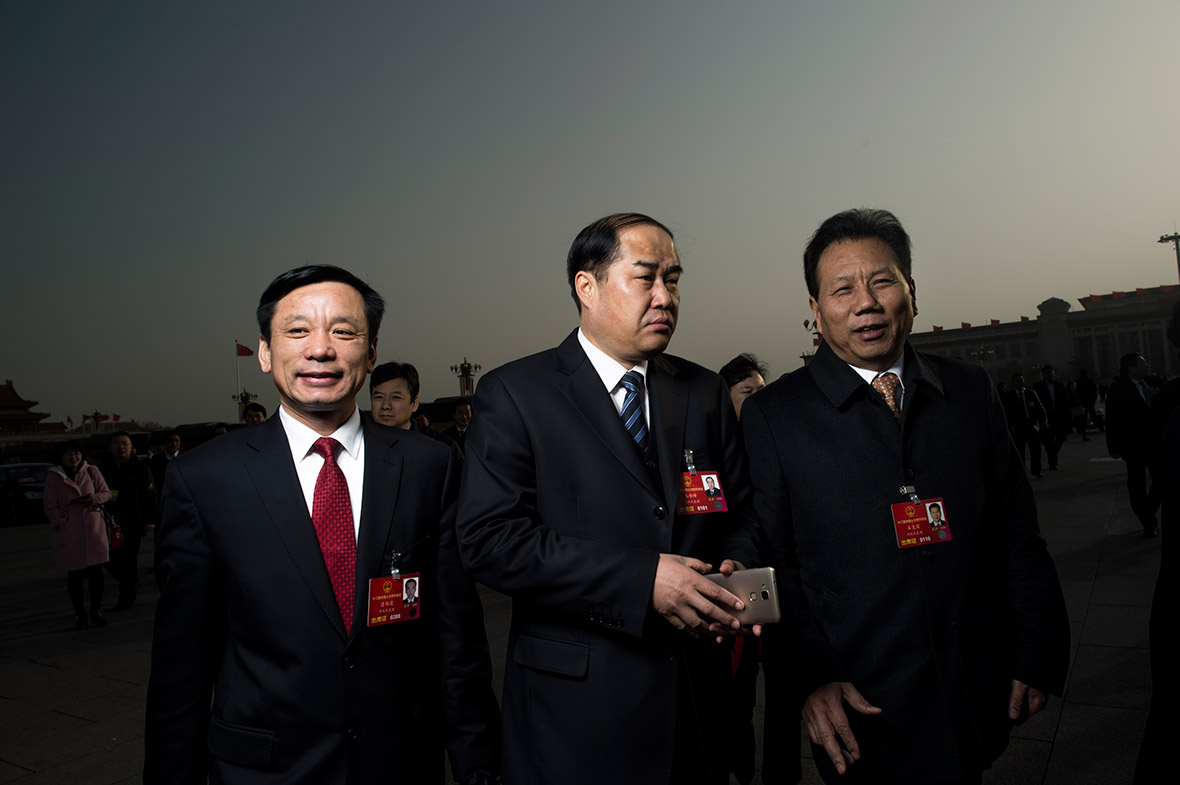China's National People's Congress: The shadowy world of Chinese politics
In this IBTimes UK gallery, AFP photographer Fred Dufour peers behind the curtain into the shadowy world of Chinese politics.
China's version of democracy is currently under way in Beijing as the state holds its annual parliamentary session. Delegates from around China have assembled to map out plans for dealing with a wobbling economy amid worries the ruling Communist Party is losing its credibility as a competent manager.
Every year around 3,000 delegates from across the country meet in Beijing's Great Hall of the People for the National People's Congress (NPC), which lasts around 12 days. The delegates attending the session represent China's 31 provinces, municipalities and autonomous regions, as well as Hong Kong, Macau and the military. The delegates are selected through an indirect voting system that ensures those approved by the party leadership get elected. Unlike legislatures elsewhere, China's does little in the way of legislating, is carefully stage-managed and allows no foreign leader to address it.
In this IBTimes UK gallery, AFP photographer Fred Dufour peers behind the curtain into the shadowy world of Chinese politics.










While the NPC's membership originally was drawn from government officials, workers and farmers, former President Jiang Zemin opened it up more than a decade ago to China's newly rich. That's given it a reputation as the world's wealthiest parliament, more likely to draw comparisons to the annual Davos gathering than any true elected assembly. This may seem at odds with the Communist Party's original mandate of seeking capitalism's downfall, yet they're not so far opposed as it may seem. Many of the fortunes were made in the post-Mao reform era during which the party oversaw the transfer of vast land holdings and other public assets into private hands.
The NPC is something of a billionaire's club, where the super-rich sit shoulder-to-shoulder with colourfully adorned Tibetan, Mongolian and other minority delegates and members of the country's vast bureaucracy. Many of China's wealthiest citizens attend the NPC – some estimate that there are more than 100 billionaires among the delegates. Membership confers both status and access to policy-makers who can help grease the wheels of commerce.











Security is ratcheted up nationwide during the NPC, but especially in Beijing, where paramilitary guards are posted throughout city. The opening session at the Great Hall of the People on Tiananmen Square was swathed in multiple layers of security, starting with bag checks in the subway and an additional checkpoint just to look onto the square.






The NPC proceeds strictly along well established lines, beginning on its first day with the premier's work report, a kind of State of the Nation address that reviews achievements of the previous year and sets out the new year's goals and priorities. Focused heavily on the economy and public services, the report is pulled together by a committee based on submissions from major government departments. Considerable lobbying precedes the premier's 90-minute speech, since a mention of one's pet project can be touted as a high-level endorsement.
Premier Li Keqiang outlined his Five-Year Plan, predicting an average annual economic growth of above 6.5 percent in the period. He said China would aim to cut water consumption, energy consumption, and carbon dioxide emissions by 23 percent, 15 percent and 18 percent, respectively.
© Copyright IBTimes 2025. All rights reserved.






















